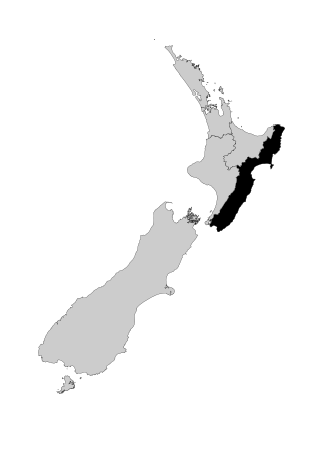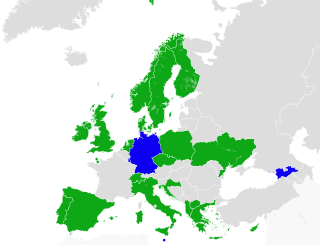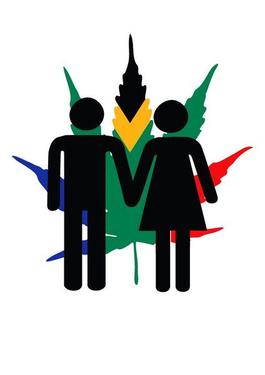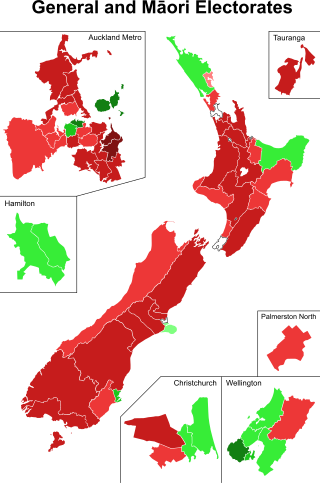
The legality of cannabis for medical and recreational use varies by country, in terms of its possession, distribution, and cultivation, and how it can be consumed and what medical conditions it can be used for. These policies in most countries are regulated by three United Nations treaties: the 1961 Single Convention on Narcotic Drugs, the 1971 Convention on Psychotropic Substances, and the 1988 Convention Against Illicit Traffic in Narcotic Drugs and Psychotropic Substances. Cannabis was reclassified in 2020 to a Schedule I-only drug under the Single Convention treaty, with the schedules from strictest to least being IV, I, II, and III. As a Schedule I drug under the treaty, countries can allow the medical use of cannabis but it is considered to be an addictive drug with a serious risk of abuse.

The Democratic Alliance is a South African political party which is a part of the current South African Government of National Unity (GNU) together with the African National Congress (ANC), Inkatha Freedom Party (IFP), and several others. The party has been the second-largest in South Africa since its foundation in 2000. The party is broadly centrist, and has been attributed both centre-left and centre-right policies. It is a member of Liberal International and the Africa Liberal Network. The DA traces its roots to the founding of the anti-apartheid Progressive Party in 1959, with many mergers and name changes between that time and the present. The DA has a variety of ideologically liberal tendencies, including neoliberalism, social liberalism, classical liberalism, and conservative liberalism. The party draws its support predominantly from Afrikaans and English-speaking people, people aged over 35, and white people, as well as the Indian and Coloured communities.

Drug liberalization is a drug policy process of decriminalizing, legalizing, or repealing laws that prohibit the production, possession, sale, or use of prohibited drugs. Variations of drug liberalization include drug legalization, drug relegalization, and drug decriminalization. Proponents of drug liberalization may favor a regulatory regime for the production, marketing, and distribution of some or all currently illegal drugs in a manner analogous to that for alcohol, caffeine and tobacco.

Ikaroa-Rāwhiti is a New Zealand parliamentary Māori electorate that was formed for the 1999 election. It covers the eastern North Island from East Cape south through Hawke's Bay and the Wairarapa to Wainuiomata and most of the Hutt Valley, but not southern Lower Hutt or Wellington City.

The Congress of the People (COPE) is a South African political party formed in 2008 by former members of the African National Congress (ANC). The party was founded by former ANC members Mosiuoa Lekota, Mbhazima Shilowa and Mluleki George to contest the 2009 general election. The party was announced following a national convention held in Sandton on 1 November 2008, and was founded at a congress held in Bloemfontein on 16 December 2008. The name echoes the 1955 Congress of the People at which the Freedom Charter was adopted by the ANC and other parties, a name strongly contested by the ANC in a legal move dismissed by the Pretoria High Court.

The use of cannabis in New Zealand is regulated by the Misuse of Drugs Act 1975, which makes unauthorised possession of any amount of cannabis a crime. Cannabis is the fourth-most widely used recreational drug in New Zealand, after caffeine, alcohol and tobacco, and the most widely used illicit drug. In 2001 a household survey revealed that 13.4% of New Zealanders aged 15–64 used cannabis. This ranked as the ninth-highest cannabis consumption level in the world.

Cannabis in the United Kingdom is illegal for recreational use and is classified as a Class B drug. In 2004, the United Kingdom made cannabis a Class C drug with less severe penalties, but it was moved back to Class B in 2009. Medical use of cannabis, when prescribed by a registered specialist doctor, was legalised in November 2018.

Cannabis is a plant used in Australia for recreational, medicinal and industrial purposes. In 2022–23, 41% of Australians over the age of fourteen years had used cannabis in their lifetime and 11.5% had used cannabis in the last 12 months.

Cannabis political parties are generally single-issue parties that exist to oppose the laws against cannabis.
Cannabis in Namibia is illegal for recreational and medicinal uses, but cannabis, just like mandrax (methaqualone), are the most popular illicit drugs in the country. Cannabis also has a history of use as a traditional medicine by local indigenous communities. Per the 2011 UNODC report, the incidence of annual cannabis usage in Namibia was 3.9% as of 2000.

Cannabis in South Africa is an indigenous plant with a rich historical, social, and cultural significance for various communities. South Africa’s cannabis policy evolution has been marked by significant shifts, particularly following decriminalisation by the Constitutional Court in 2018, and the passing of the Cannabis for Private Purposes Bill in May 2024.

Cannabis in Ireland is illegal for recreational purposes. Use for medical purposes requires case-by-case approval by the Minister for Health. A bill to legalise medical uses of cannabis passed second reading in Dáil Éireann in December 2016, but was rejected by the Oireachtas Health Committee in 2017.

Cannabis in Luxembourg is legal for recreational and medical use for adults under specific circumstances. A bill was passed in the country's parliament June 2023 to legalise the following for adults in Luxembourg: recreational possession, home-use of cannabis, and growing up to four cannabis plants per household. The law took effect on 21 July 2023.
The council of the City of Cape Town in the Western Cape, South Africa is elected every five years by a system of mixed-member proportional representation. Half of the councillors are elected by first-past-the-post voting from individual wards, while the other half are appointed from party lists so that the total number of party representatives is proportional to the number of votes received. By-elections are held to replace the councillors elected by wards if a vacancy occurs.

The Dagga Couple or DC is a pro-cannabis lobbyist organisation from South Africa founded by Julian Stobbs and Myrtle Clarke after the two were arrested for the possession and dealing in the substance in 2010. Rather than plead guilty, the couple decided instead to sue seven sectors of government that maintained and enforced the policy of cannabis prohibition in the country resulting in what has been described locally as the Trial of the Plant in 2017.

The 2020 New Zealand cannabis referendum was a non-binding referendum held on 17 October 2020 in conjunction with the 2020 general election and a euthanasia referendum, on the question of whether to legalise the sale, use, possession and production of recreational cannabis. It was rejected by New Zealand voters. The form of the referendum was a vote for or against the proposed "Cannabis Legalisation and Control Bill". Official results were released by the Electoral Commission on 6 November 2020 with 50.7% of voters opposing the legalisation and 48.4% in support.

Dagga is a word used in certain areas of Southern Africa to describe cannabis. The term, dating to the 1660s, derives from the word dacha in the Khoekhoe language used to describe the plant as well as various species of Leonotis. The leaves of specifically the Leonotis leonurus resemble the cannabis leaf and is known locally as wild dagga. The word has been spelled many different ways over time as various groups of people began using the term and some examples of these are: daggha, dacha, dacka, dagha, tagga, dachka, daga. According to the Oxford Dictionary, dagga was also used by the Khoekhoe to describe the sensation of intoxication.

African Democratic Change (ADeC) is a South African political party. It was launched on 1 December 2017 by former African National Congress Member of Parliament, Makhosi Khoza. Khoza resigned from the party in April 2018. The party is currently led by Visvin Reddy.












